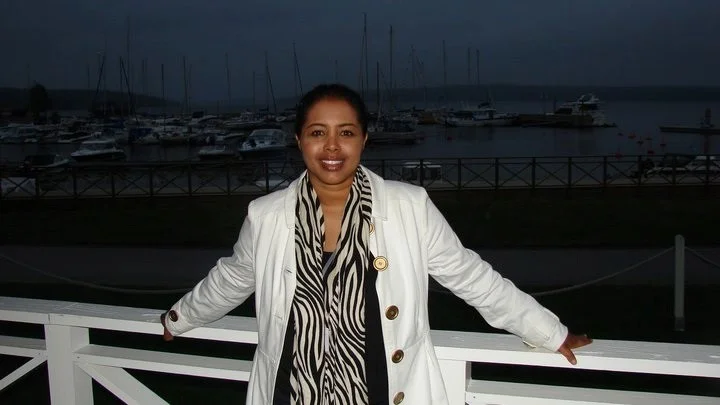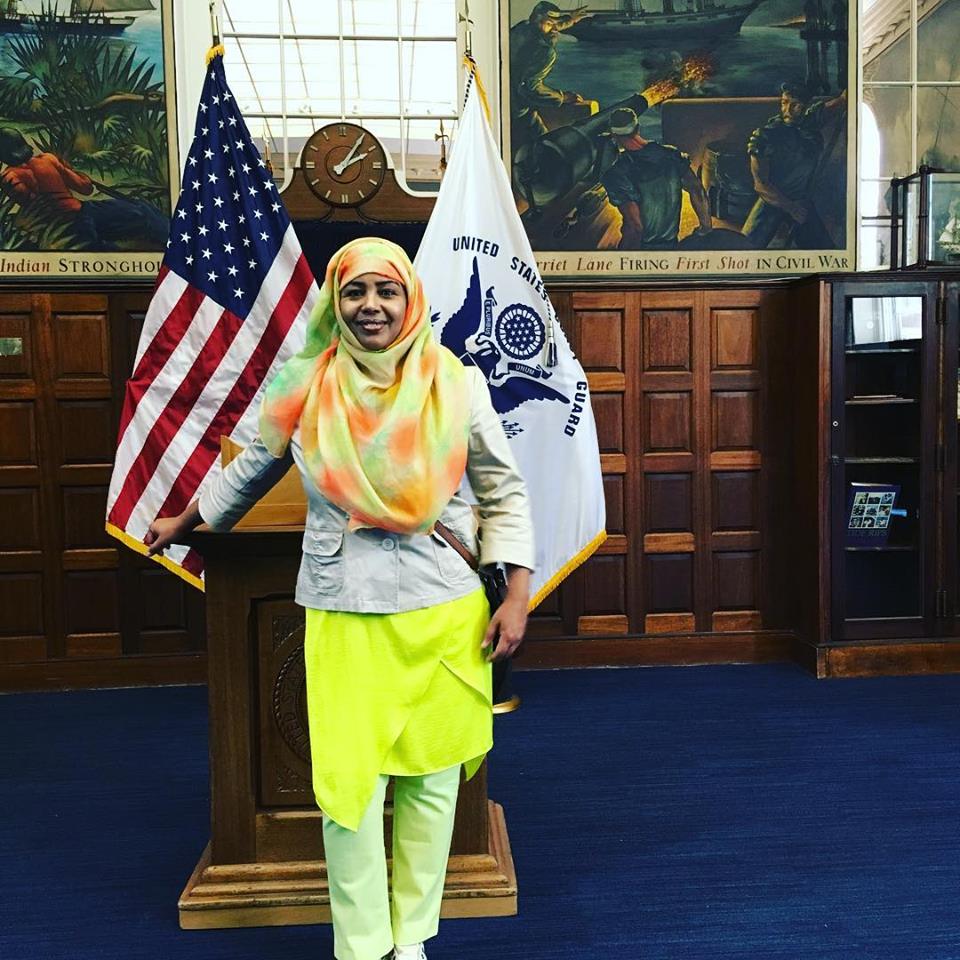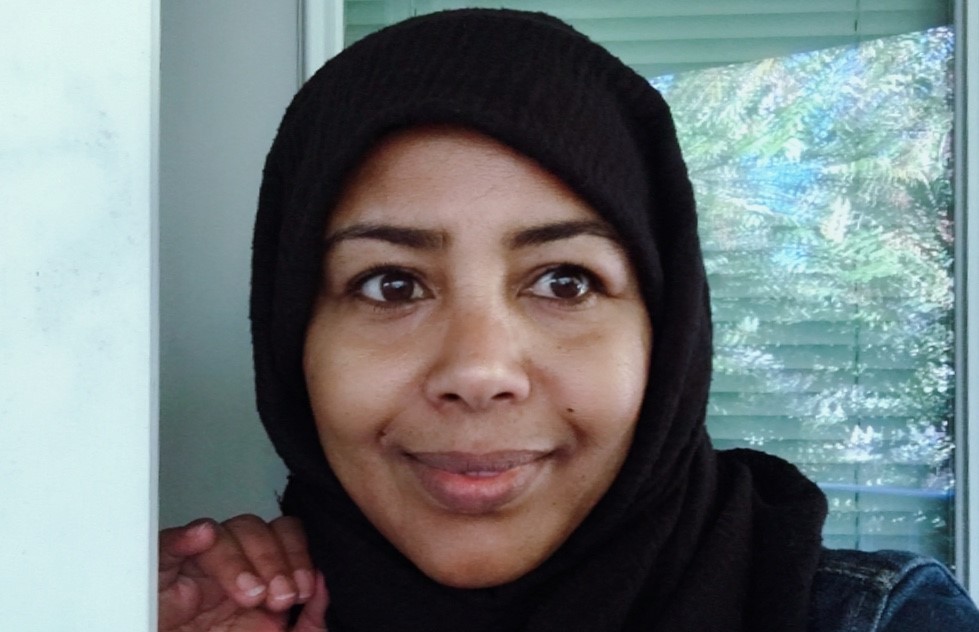I will never forget the day I put on a hijab for the first time. It was like going to sleep and waking up to a different world. The summer of 2011, I was invited to a conference in Sigtuna, Sweden. The theme for that year was “How do we live together?” One of the panels I participated in was about belonging. There were a lot of conflicted attendees there and they talked about how they didn’t fit in anywhere. It was a familiar feeling as a little girl growing up in Somalia. The world is full of people who feel trapped and foreign in their own motherland.

Sigtuna, Sweden 2011
When I returned home to America, I decided to put on the hijab because my long beautiful brown, hair was thinning due to stress. One morning I took my daughter to school and when I came back home, I shaved my hair off in the hopes of having it grow back fuller. I will never forget that day. It was like going to sleep and waking up to a whole new world. The way some people looked at me, talked to me, and treated me was unlike anything I had ever experienced. Everything changed because of a piece of cloth covering my head.
As a country and people we take pride in individual and religious freedoms yet, Americans seem to be stuck on the hijab. In January 2017, I co-founded a project called Eat With Muslims. It’s designed to bring Muslims and fellow non-Muslims together giving all of us an opportunity to connect emotionally through food and stories. We encourage people to ask questions about anything and our Muslim dinner guests, who have diverse backgrounds, professional knowledge, and lived experiences, try to answer. It turns out that the burning question in many people’s minds is: Why do Muslim women wear the hijab?
The answers always remain the same, we wear it for modesty. We wear it for the same reason Jesus’ mother Mary wore it. Still, studies show that only 38 percent of Muslim women wear the hijab today. Many of them tailor it to their own preference, styles, and cultures.
In Sura An Nur verse 31: Allah says, “And say to the believing women that they should lower their gaze and guard their modesty; that they should not display their beauty and ornaments except what (must ordinarily) appear thereof; that they should draw their veils over their bosoms and not display their beauty”

New London, Connecticut 2017
I can remember in 2017, I was on my way to speak at the US Coast Guard Academy in Connecticut. When I boarded my connecting flight, I had the middle seat between two white men. I immediately noticed that one of them had a hostile look in his face. My sheer presence bothered him. I asked if I could pass by, but he ignored me and then finally huffed and puffed as he let me through. As I slowly made my way to my seat, feeling anxious, the other man smiled at me and made me feel welcome. We both noticed the hostility coming from the left side, and it was even clearer when the two movies the man chose to watch was American Sniper and Zero Dark Thirty. I knew the best thing to do was to continue being my cheery self and let my hijab do its magic. Ironically, it concealed me from the dark shadow on my left and allowed me to focus on the nice conversation I shared with the man to my right.
For a split second, I thought about how if I didn’t wear a veil he probably would have been nicer to me, not discriminating against me based on my faith. However, I was quickly reminded that wearing it has been a gift from God. It has put me on a spiritual path that I don’t think I would have taken otherwise. I love my hijab and it helps me express myself as a Muslimah. It’s a part of me, even as my hair has grown back. It’s my companion and my best friend at times.

Seattle, Washington 2018
My hijab holds a lot of secrets which is the wisdom behind its revelation. It’s said that we cover when we are youthful and nearly perfect so that it covers our imperfections later when we really need it, which happened to be the case for me. Just as women are encouraged to be modest, men are too, and each of us has the right to express what modesty means and how we want to live our lives. And at the end of the day, a hijab is just a piece of cloth, a piece of clothing so let’s leave it at that.

